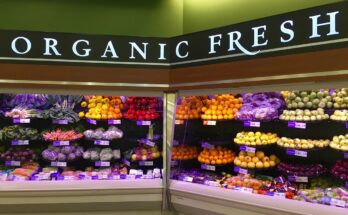Do you ever wonder how we can ensure that everyone has access to safe and nutritious food?
The answer lies in understanding the role of food processing in food security. By extending the shelf life of perishable goods, we can minimize food waste and ensure that more people have access to fresh produce for longer periods.
Additionally, food processing techniques can enhance the nutritional content of food, making it more beneficial for our health. Through value addition, processing techniques can transform raw ingredients into products with higher economic value, benefiting both producers and consumers.
However, it is important to strike a balance between the benefits and drawbacks of food processing. While it can improve food security, it also has the potential to negatively impact the environment and contribute to the loss of traditional food practices.
To ensure a sustainable future, we must work towards finding solutions that prioritize both food security and environmental sustainability.
Extending the Shelf Life of Perishable Goods
Did you know that by processing food, you can extend the shelf life of perishable goods and ensure they stay fresh for longer? Food processing techniques such as canning, freezing, and drying are commonly used to preserve perishable items.
Canning involves sealing food in airtight containers and heating them to kill bacteria and other microorganisms that cause spoilage. Freezing slows down the growth of bacteria and enzymes that break down food, while drying removes moisture that bacteria need to survive.
These methods not only increase the longevity of perishable goods but also allow for convenient storage and transportation. By extending the shelf life of food through processing, we can reduce food waste and ensure a more secure food supply for everyone.
Enhancing Nutritional Content
Improving the nutritional content of processed foods ensures that individuals have access to visually appealing and nutrient-rich options. By enhancing the nutritional content, food processors can contribute to addressing nutritional deficiencies and promoting overall health.
Through various methods such as fortification and enrichment, processed foods can be enriched with essential vitamins, minerals, and other beneficial nutrients. This not only helps individuals meet their daily nutritional requirements but also provides them with a convenient and accessible source of these vital nutrients.
Additionally, enhancing the nutritional content of processed foods can help combat malnutrition and improve food security, especially in areas where fresh produce is not readily available or affordable. By making processed foods more nutritious, we can contribute to a healthier and more sustainable food system for everyone.
Value Addition through Processing Techniques
By enhancing the nutritional content of processed foods, food processors can contribute to the diversification and enrichment of individuals’ diets, providing them with a wider range of nutrient-rich options.
Through various processing techniques, such as fortification and enrichment, processors can add essential vitamins, minerals, and other beneficial nutrients to foods. For example, they can fortify cereals with iron and folic acid, or enrich milk with vitamin D and calcium. These techniques not only enhance the nutritional value of processed foods but also address specific nutrient deficiencies in populations.
Moreover, value addition through processing techniques can improve the taste, texture, and shelf life of foods, making them more appealing and accessible to consumers. By incorporating these techniques into their practices, food processors play a vital role in ensuring food security and promoting healthier diets for individuals worldwide.
Balancing Benefits and Drawbacks of Food Processing
To fully appreciate the impact of food processing, you need to consider the delicate balance between the benefits it brings and the potential drawbacks it may entail.
On one hand, food processing plays a crucial role in increasing the shelf life of perishable foods, making them more accessible and reducing food waste. It also allows for the creation of convenient and ready-to-eat products, which can be especially beneficial for individuals with busy lifestyles.
However, it’s important to acknowledge that some processing techniques can lead to a loss of nutrients and the addition of unhealthy additives. Moreover, excessive processing can result in a loss of natural flavors and textures, compromising the overall quality of the food.
Therefore, finding the right balance in food processing is vital to ensure that the benefits outweigh the drawbacks and promote both food security and nutrition.

Working Towards Sustainable Solutions for Food Security
Looking for ways to ensure a sustainable future for our food supply? Let’s explore solutions that address the challenge of food security while considering environmental impact and long-term viability.
One solution is to promote the use of sustainable agricultural practices that minimize the need for food processing. By focusing on regenerative farming techniques, such as organic farming and agroforestry, we can reduce the reliance on chemical inputs and promote biodiversity.
Additionally, supporting local food systems and shortening supply chains can help reduce the energy and resources required for food processing and transportation.
Another approach is to invest in research and development of innovative food processing technologies that prioritize energy efficiency and waste reduction.
By adopting these sustainable solutions, we can ensure a resilient and secure food supply for future generations while minimizing the impact on our environment.
Conclusion
So now you understand the importance of food processing in ensuring food security. By extending the shelf life of perishable goods and enhancing nutritional content, we can meet the growing demand for food worldwide. Additionally, adding value through processing techniques is crucial. However, it’s important to strike a balance between the benefits and drawbacks of food processing and work towards sustainable solutions.
With careful planning and implementation, we can ensure that everyone has access to safe and nutritious food for a brighter future.




